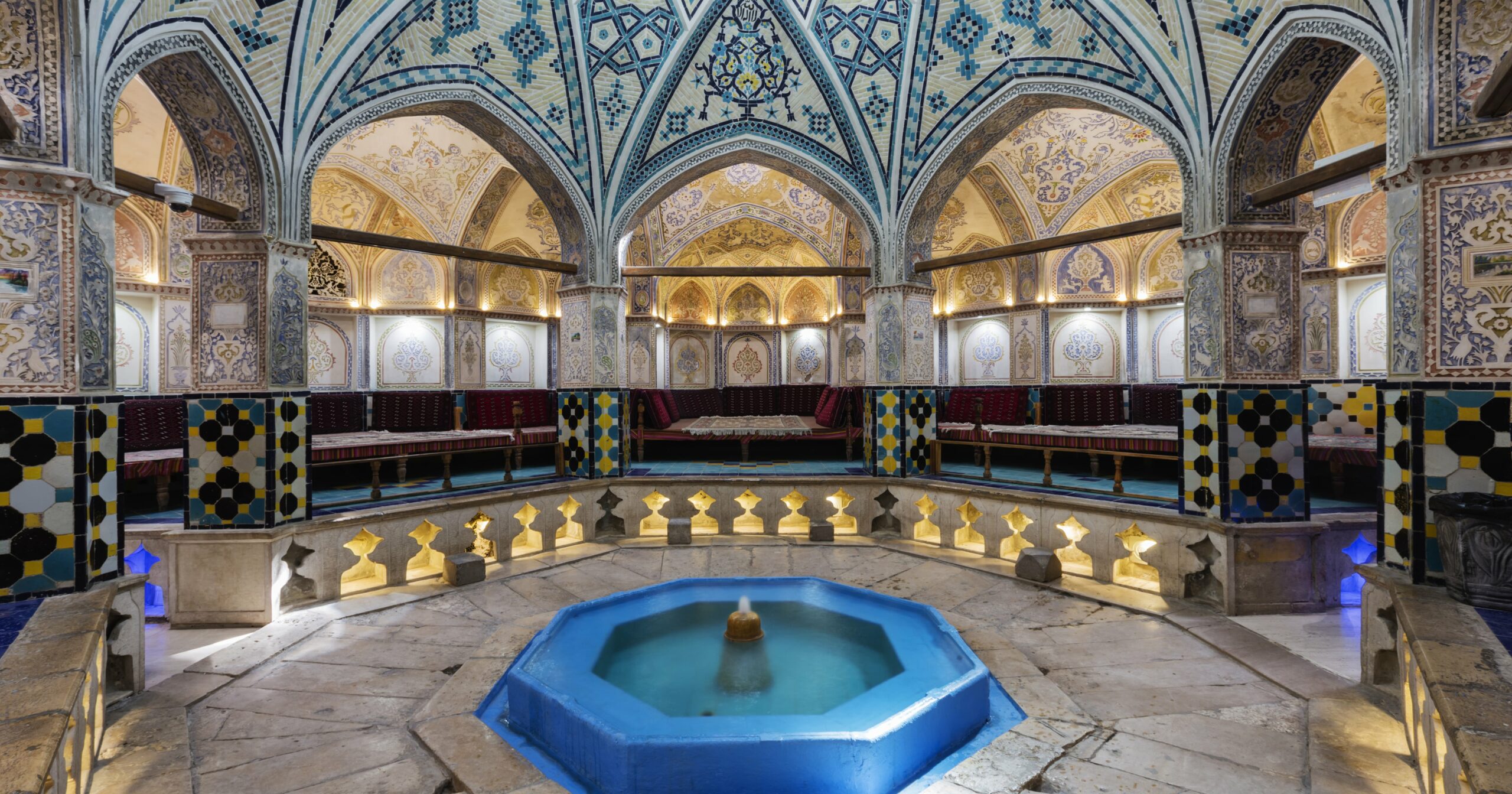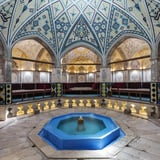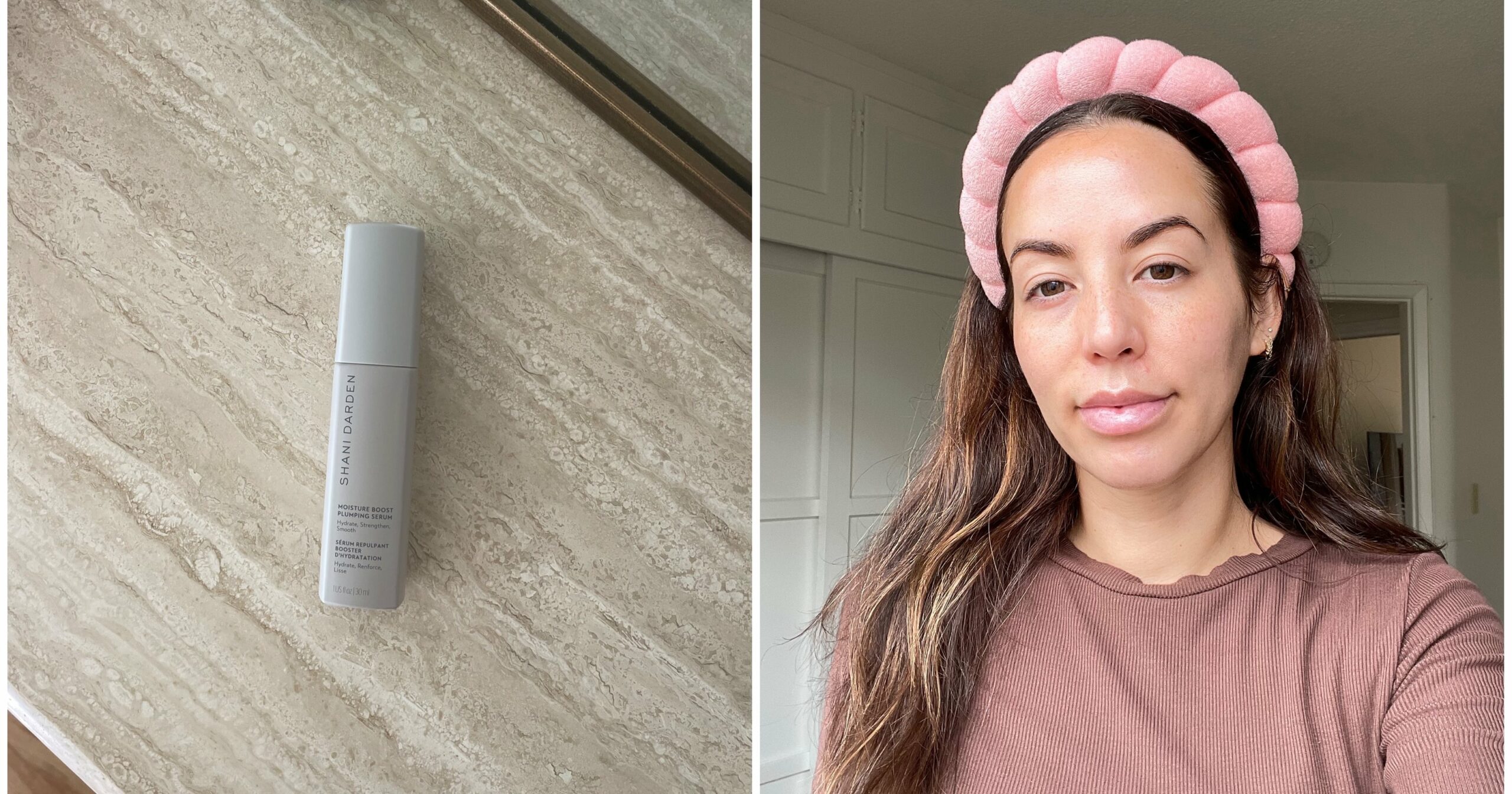Image Source: Getty/Jeremy Woodhouse
There’s taking a bath and then there is bathing, the latter of which can be an artistic ritual. With roots in ancient Rome, the practice has become known as hammam, a term for the physical establishment of a bathing house and the act of cleansing the body using water or steam. “It’s a 3,000-year-old ritual that evolved through the Mediterranean area,” Teyma Touati, founder of Nerrā, a body-care brand based on the principles of hammam rituals, tells POPSUGAR. “The Greek first discovered that hot water can be relaxing, then the Romans followed up with the public bathhouses. They built huge bathing spaces with three chambers that provided hot, warm, and cold water. Due to the reign of the Roman empire, they were introduced to numerous countries including mine, Tunisia.”
As the hammam spread to other parts of the world, it developed into a more communal practice, serving as a place for friends and family to gather and catch up. “Hammam is usually done in a communal bathhouse, where men and women are separated, and involves cleansing, exfoliating, and massaging the entire body,” explains Brooke DeVard Ozaydinli, host of the “Naked Beauty” podcast. DeVard Ozaydinli – whose husband, Umut, is Turkish – has developed a special appreciation for the hammam thanks to many visits to Umut’s home country. “When I travel to Istanbul, I usually opt for a private treatment, which many modern spas and hotels offer, but the traditional bathhouses are [still] communal and an experience in its own right,” she says. “Beyond the actual treatment, the bathhouses are gorgeous spaces often made up of marble and adorned with intricate tiles.”
Whether you want to appreciate the opulent and historical architecture of a traditional hammam or you are just looking to take your “elevated shower” to newer heights, Touati, DeVard Ozaydinli, and her husband and recommend going to a hammam at least once. “Growing up, I didn’t go to hammam,” Umut tells POPSUGAR. “It was seen as something for older people . . . as it turns out, my ancestors had the right idea. And now that I’m older, I’ve loved seeing the renaissance of Turkish hammam through all of the spas in Turkey.”
So what exactly does a hammam experience entail? The multi-step routine can technically be done anywhere, but traditionally, you would first steam to open up the pores, which is why the bathhouse is so convenient. Then you’d be exfoliated, cleansed, rinsed, and massaged, with the goal getting baby-soft skin all over your body. “After steaming, you start to prepare the skin with either black or green soap, depending on the region that you’re in,” Touati says.”After that soap is rinsed off, you start to exfoliate with a kessa, which is a glove that takes all the dead skin off of the body. The next step is to do a full-body clay mask, which is then rinsed and followed by argan oil to lock moisture into the skin.”
As they’ve become more modernized, hammam rituals are more private than they once were, and you can do many of the steps in the comfort of your own home. “That is the entire essence of Nerrā,” Touati says. “It was created to introduce something deeply traditional to a new audience. But the secret is to preserve the DNA of the traditional practice of hammam. Throughout the whole process, this idea was at the forefront of my mind.” As such, Nerrā’s four-step body ritual closely mimics all the treatments you would get during a trip to a hammam, from the Pre-Exfoliating Foam ($26) that is inspired by green soap from Tunisia to the Dry Body Oil ($85), which is made of a combination of natural oils like rose hip, argan, and hibiscus seed.
Others, like the Ozaydinlis, very much want to keep the communal aspect of the tradition alive and they plan to do so with their son, Mavi. “When he’s old enough, I look forward to taking him to the hammam with me,” Umut says. “Very young boys will typically accompany their mothers but I look forward to bringing him with me in our summer travels back to Turkey. He’s always eager to learn more about Turkish culture and he will recognize many of the elements from his own bath-time routine at home.”




